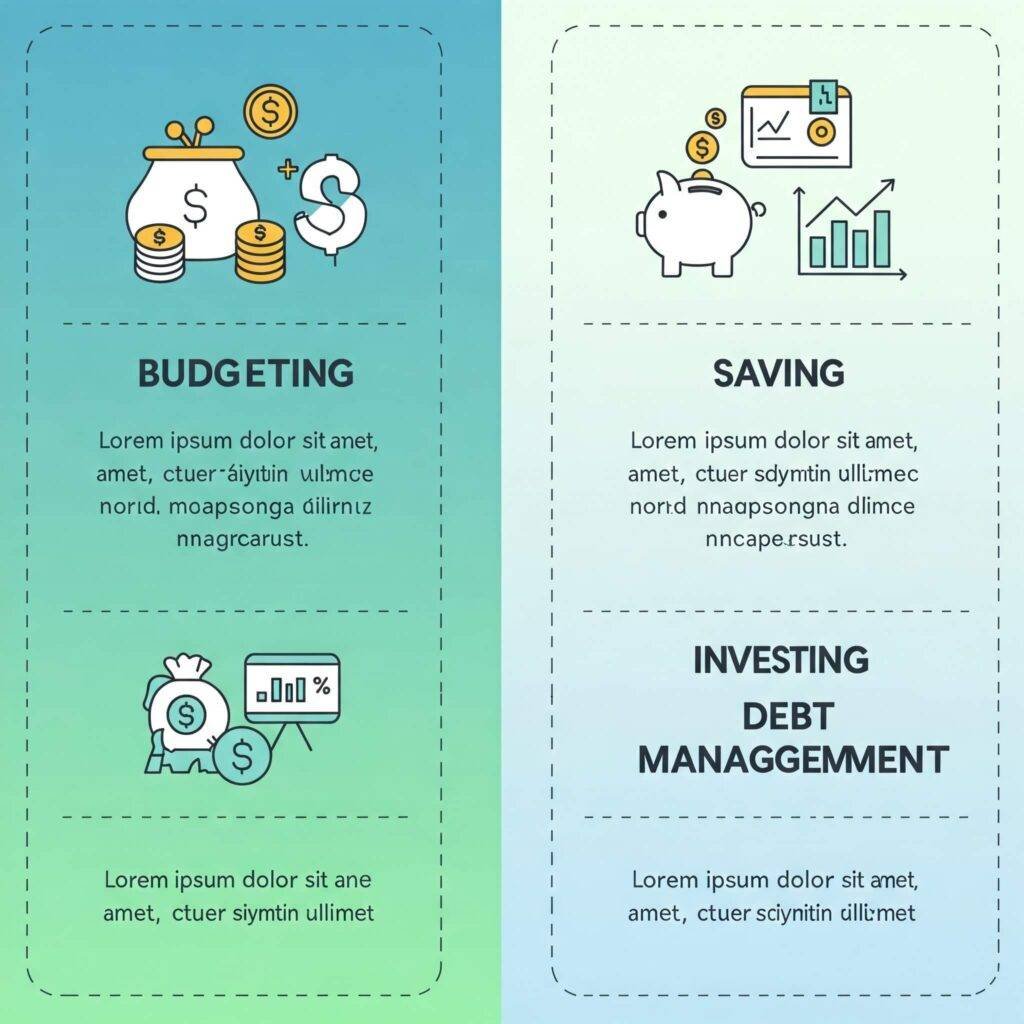Financial literacy is the cornerstone of building lasting wealth. Understanding how money works—budgeting, saving, investing, and managing debt—empowers individuals to make informed decisions that lead to financial freedom. In a world where financial systems grow increasingly complex, being financially literate is no longer optional; it’s essential. This blog explores why financial literacy is the key to building wealth, offering actionable insights and real-world examples to help you take control of your financial future.
What is Financial Literacy?
Financial literacy is the ability to understand and effectively use financial skills, including budgeting, saving, investing, and managing debt. It’s about knowing how to make your money work for you rather than being overwhelmed by financial jargon or decisions. According to a 2023 study by the National Financial Educators Council, 65% of Gen Z feel unprepared to manage their finances, highlighting the urgent need for financial education.

Why Financial Literacy Matters
Without financial literacy, even high earners can fall into debt traps or miss wealth-building opportunities. For example, a professional earning $100,000 annually might live paycheck to paycheck if they lack budgeting skills or overspend on credit. Financial literacy equips you to avoid these pitfalls and build a secure future.
How Financial Literacy Drives Wealth Creation
Financial literacy directly impacts your ability to grow wealth by enabling smarter finance decisions. Here’s how it works:
1. Mastering Budgeting for Wealth
A budget is the foundation of finance literacy. It helps you track income, control spending, and allocate funds toward savings or investments. Tools like YNAB (You Need A Budget) or Mint make budgeting accessible.
- Example: Sarah, a 30-year-old teacher, used a 50/30/20 budget (50% needs, 30% wants, 20% savings/investments) to save $10,000 in two years, which she invested in a low-cost index fund.
2. Investing Wisely to Build Wealth
Financial literacy demystifies investing, helping you understand assets like stocks, bonds, or real estate. It teaches you to diversify and avoid risky “get-rich-quick” schemes. A Vanguard study shows that diversified portfolios yield better long-term returns.
- Actionable Tip: Start with low-cost ETFs or mutual funds. Platforms like Robinhood or Fidelity offer beginner-friendly options.

3. Managing Debt to Protect Wealth
Debt can erode wealth if mismanaged. finance literacy teaches you to prioritize high-interest debt and avoid unnecessary borrowing. For instance, paying off a 20% interest credit card before investing can save thousands in the long run.
- Example: John consolidated his $15,000 credit card debt into a low-interest personal loan, saving $3,000 in interest and paying it off in three years.
The Long-Term Benefits of Financial Literacy
Financial literacy isn’t just about immediate gains; it sets you up for lifelong wealth. Here are key benefits:
- Financial Freedom: Achieve goals like early retirement or traveling the world without financial stress.
- Generational Wealth: Teach your children finance literacy to break cycles of poverty. A Forbes article notes that families with financial education are more likely to build multi-generational wealth.
- Resilience: Navigate economic downturns with confidence by having an emergency fund and diversified investments.

How to Improve Your Financial Literacy
Ready to unlock the key to building wealth? Here are practical steps to boost your finance literacy:
- Read Books: Start with “Rich Dad Poor Dad” by Robert Kiyosaki or “The Millionaire Next Door” by Thomas J. Stanley.
- Take Courses: Platforms like Coursera offer free personal finance courses.
- Follow Experts: Listen to podcasts like “The Dave Ramsey Show” or follow financial advisors on X for real-time tips.
- Practice: Create a budget, track expenses, and experiment with small investments to build confidence.
Conclusion: Financial Literacy is Your Wealth-Building Superpower
finance literacy is the key to building wealth because it empowers you to make informed, strategic decisions about your money. Whether you’re budgeting for the first time or investing for retirement, financial education transforms your financial future. Start small, stay consistent, and watch your wealth grow.
Take the first step today: create a budget, read a financial book, or explore an investment app. Your journey to finance freedom begins with literacy.
Outbound link:
Why Financial Literacy Is So Important” (Harvard Business School)

